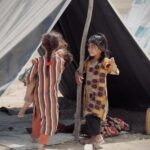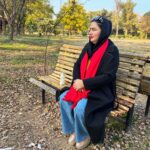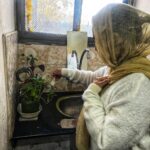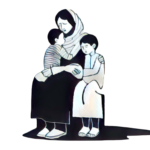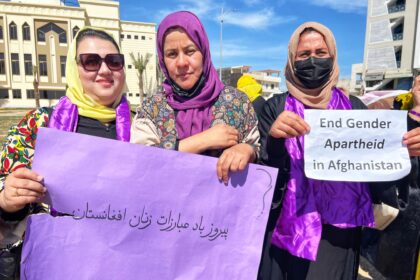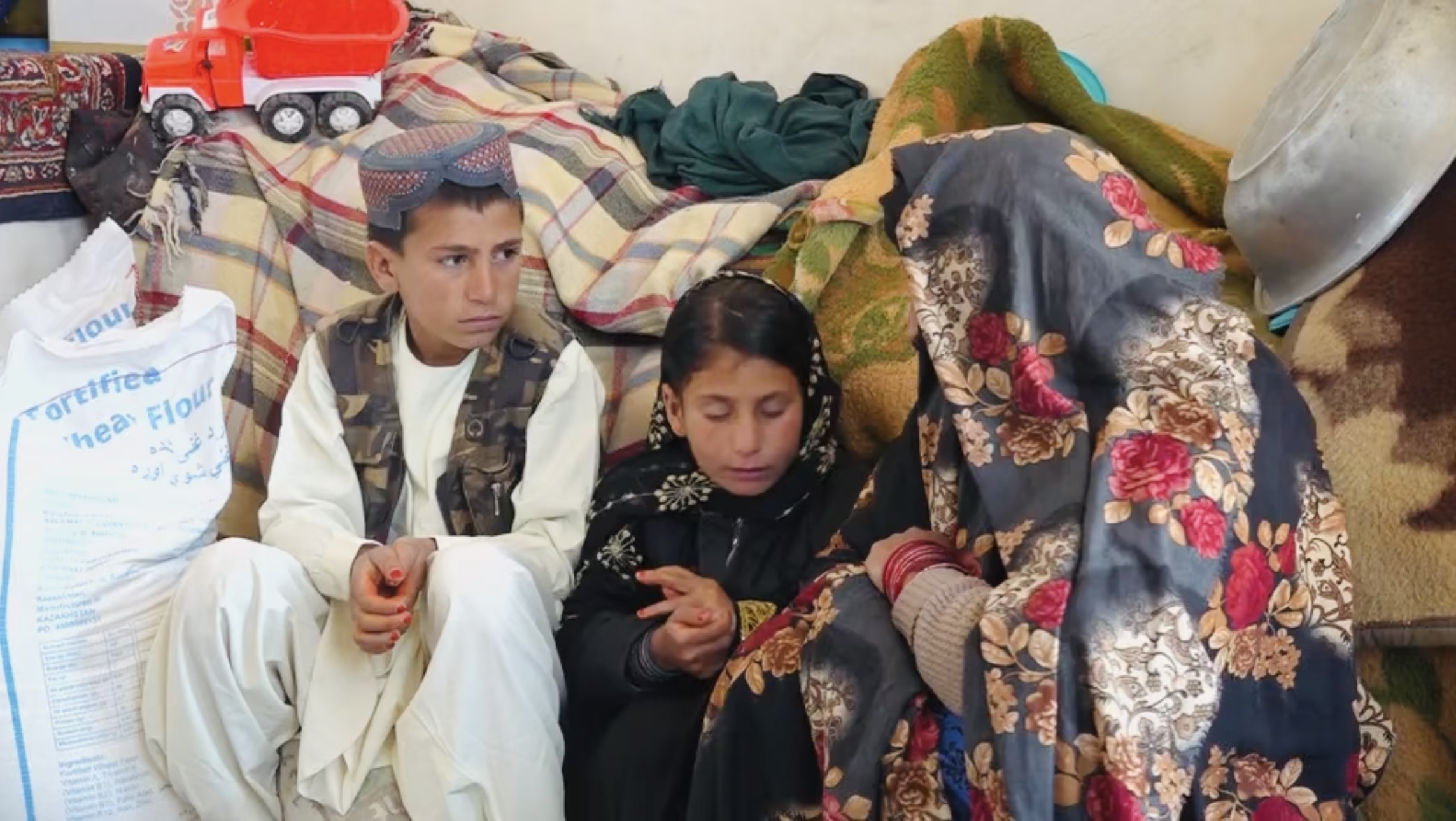Maqsooda and her daughters now drink as little water as possible during the day. They prefer to spend hours in discomfort rather than be forced to relieve themselves where they can be seen.
“There is no place for showering or going to the bathroom,” said Maqsooda, who was forced to flee her house with her daughters when floodwater inundated the area.
Multiple provinces in Afghanistan have declared a state of emergency over the past two weeks as flash floods tear through the country’s valleys. Earlier this month, the United Nations’ World Food Program estimated that flash floods had killed over 300 and left many more injured as of May 11. At least 50 more people were killed in new flooding this past weekend.
Survivors, especially displaced women, face numerous challenges. Many of them are living in relatives’ houses.
A lack of functioning toilets in the flooded villages is one significant, yet overlooked, issue, posing a health hazard for everyone, and particularly causing misery for women and girls. In Afghanistan, men have priority access to available facilities, and women are not allowed to use the men’s toilets.
“There are only a few toilets available. Multiple households in the village share the same facilities. We are not permitted to use the toilets our male relatives use,” Maqsooda said. “We live behind the veil, how can we use the same toilet?” she added, referring to the strict segregation between genders practiced in Afghanistan.
Afghanistan is home to many conservative Muslim communities.
When the sun sets, and darkness falls on the village, the women seek a secluded spot away from the neighborhood. They take turns keeping watch and warning off any approaching men. “I don’t know what we can do if someone decides to watch us,” said Maqsooda.
“Where can I send my daughters alone? When we squat to relieve ourselves, we fear some man might approach.”
She expressed deep shame at having to relieve herself in the open, especially after catching a man watching her.
The pregnant among the displaced can’t wait all day, so they relieve themselves in the floodwater.
Dr. Ghafar Khan, a volunteer in the flood-affected areas of Baghlan province, reports that many of the patients he has seen recently have developed diseases due to the lack of toilets and clean water.
“In the past three days, I have treated around 300 patients, many of whom exhibit symptoms of malaria, cholera, and other waterborne diseases,” said Khan.
“The lack of clean water and proper sanitation facilities are the main contributing factors to the rise in these diseases,” he said.
Volunteer doctors work tirelessly to see as many patients as possible each day, but the region faces a significant challenge due to the shortage of female doctors.
“For critically ill female patients, families are often left with no choice but to seek help from male doctors due to the lack of female physicians,” said Khan.
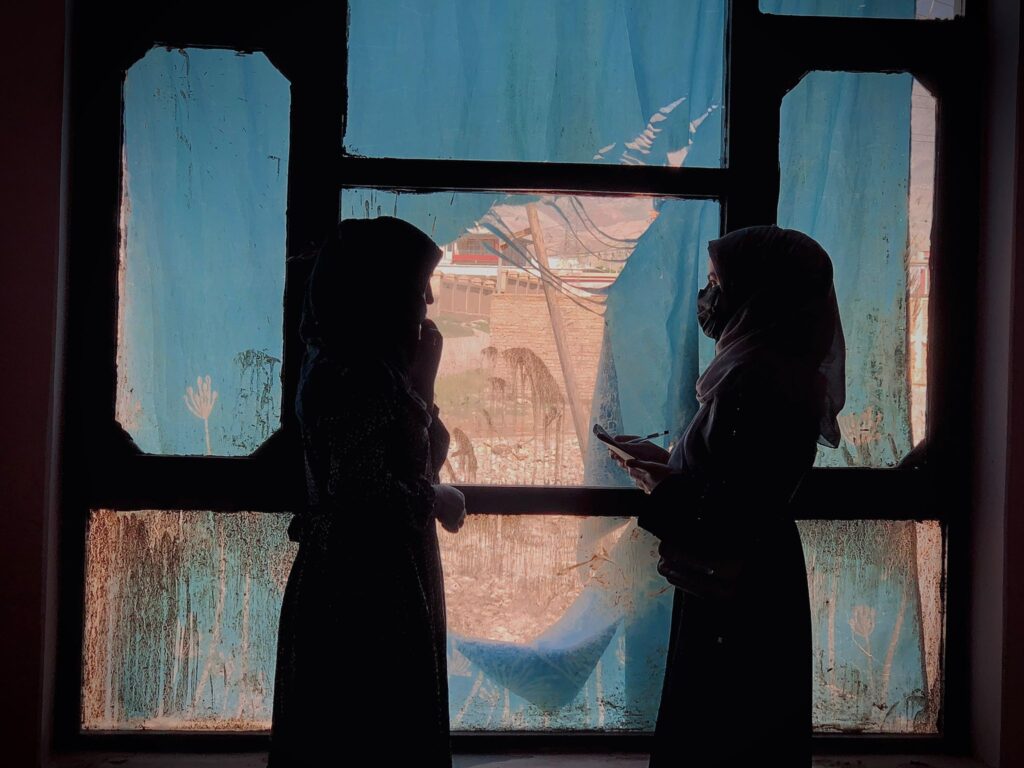
Women Struggling to Access Sanitary Products
Women affected by the floods are struggling to access sanitary products. Some feel uncomfortable talking about menstruation with aid providers, but women in the flood-affected areas are finding that NGO aid does not always contain sanitary products.
Frishta, 49, from the Nahrin district of Baghlan province, said that some women need sanitary products during their period but they cannot talk about it and ask for sanitary pads.
After their home was flooded, the family’s belongings were destroyed. Relief organizations provided food and tents. “We had to move to a tent with our family,” Frishta told The Afghan Times.
She said she and her relatives rushed to the tents in Baghlan at night, along with other families from flood-hit areas.
“During the night, without any facilities in the tents, we slept under the open sky,” said Frishta. The next morning, the provincial administration and numerous volunteers and welfare organizations provided them with food and other essentials.
But Frishta said she had met a woman in distress, who had started her period and had no sanitary products.
She said she spoke to other menstruating women in the neighborhood and encouraged them to inform the authorities about their needs. She said that many felt they could not discuss such an issue and were afraid to speak up.
Frishta said that women would turn to using pieces of cloth in lieu of proper sanitary products, but it was difficult, especially when they were covered in dust.
“At that time, I reached out to the doctors who were in the village medical camp for those affected by the floods and informed them about the women having a menstruation cycle. The doctors said they had no sanitary products,” Frishta said.
She said that she kept it a secret from male family members. If they found out that she discussed menstruation with doctors, it could put her in danger.
“After searching around and around, I was not able to find a single sanitary pad for women – while every woman needs it urgently,” said Frishta.
Volunteers say that people are hesitant to discuss menstruation due to cultural taboos.
We spoke to a volunteer named Shoaib who works for an aid organization in Baghlan province. We asked him why they weren’t providing sanitary products to the women they were helping. Shoaib explained that he wanted to start by providing them to his own family first.
When he told his mother about his plan to deliver sanitary pads to women affected by floods in Baghlan province, “she got angry and said it is shameful.” Shoaib shared this story while he was delivering food to families affected by the floods.
“Talking about periods and menstrual health is still considered a taboo in the region,” Shoaib said. “People don’t talk about this problem.” Despite their efforts to raise awareness about hygiene kits, he and his team have faced difficulties while discussing sanitary products with the community.
Shoaib’s team attempted to distribute sanitary pads to women through a team of female volunteers. “The women were hesitant to take the sanitary products from our female volunteer team. They tried to convince them as much as they could.” He said one volunteer even reported facing difficulties while distributing the products among the women.
“It’s important to accept that menstruation is a normal part of women’s lives and to have open conversations about it,” said Shoaib.
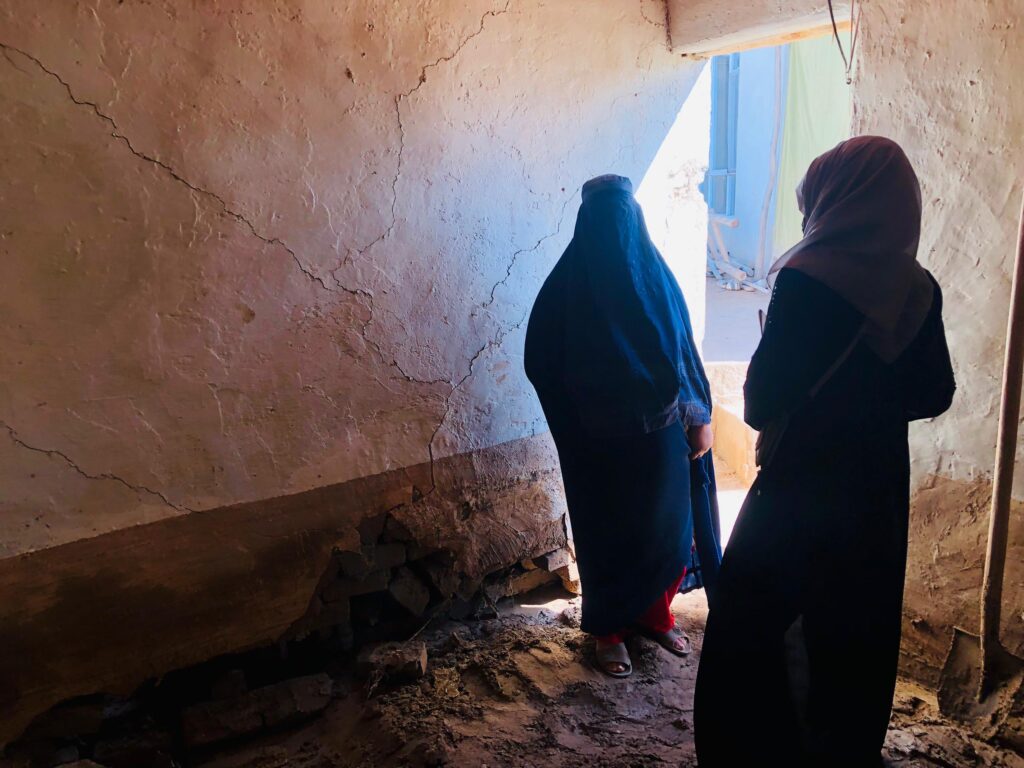
- The names of the interviewees have been changed to protect their identities.
- The Afghan Times reporters Parven and Shabana interviewed women affected by floods in Baghlan province. They were the sole female reporters in the region. Their names have been changed to protect their identities.




